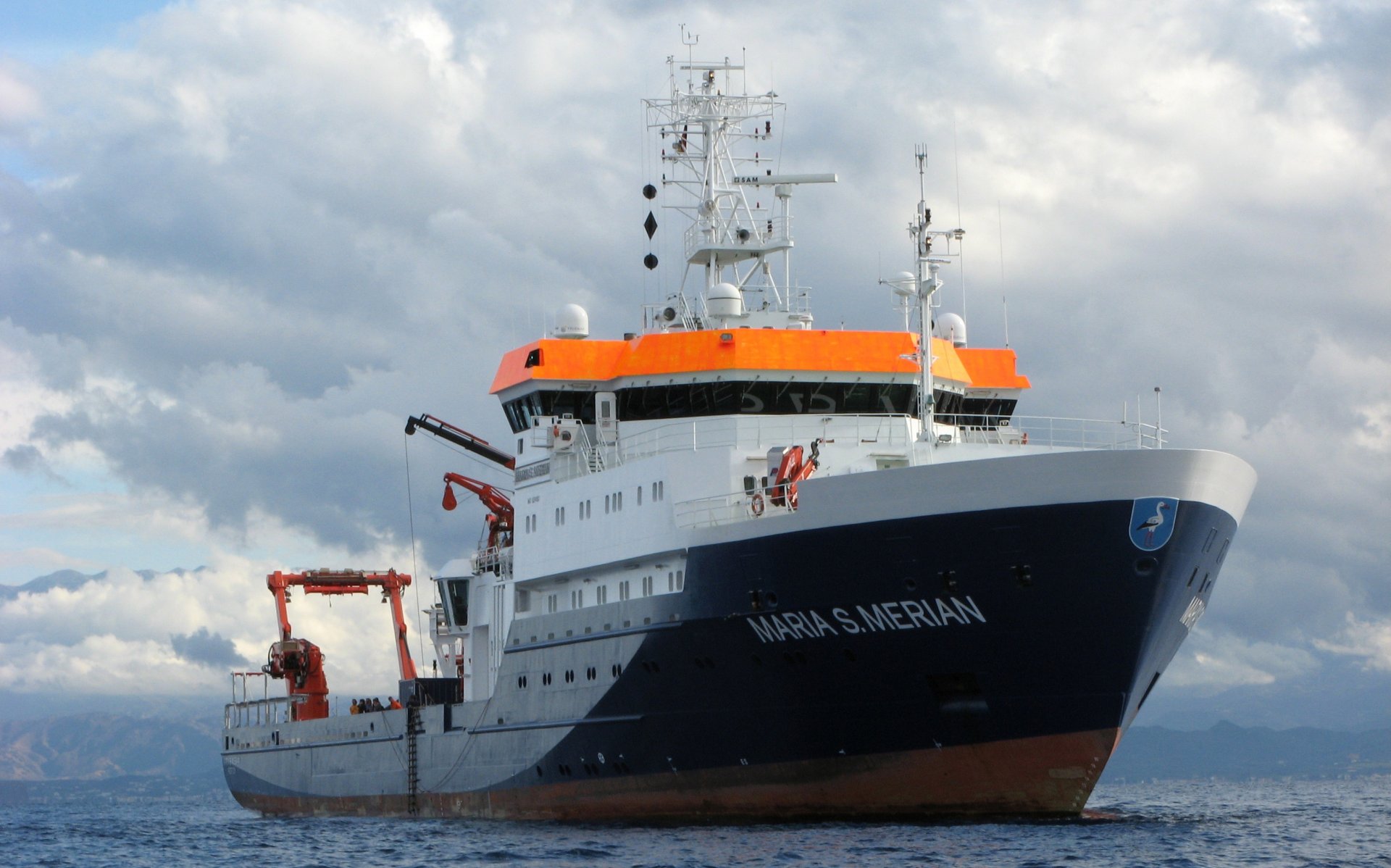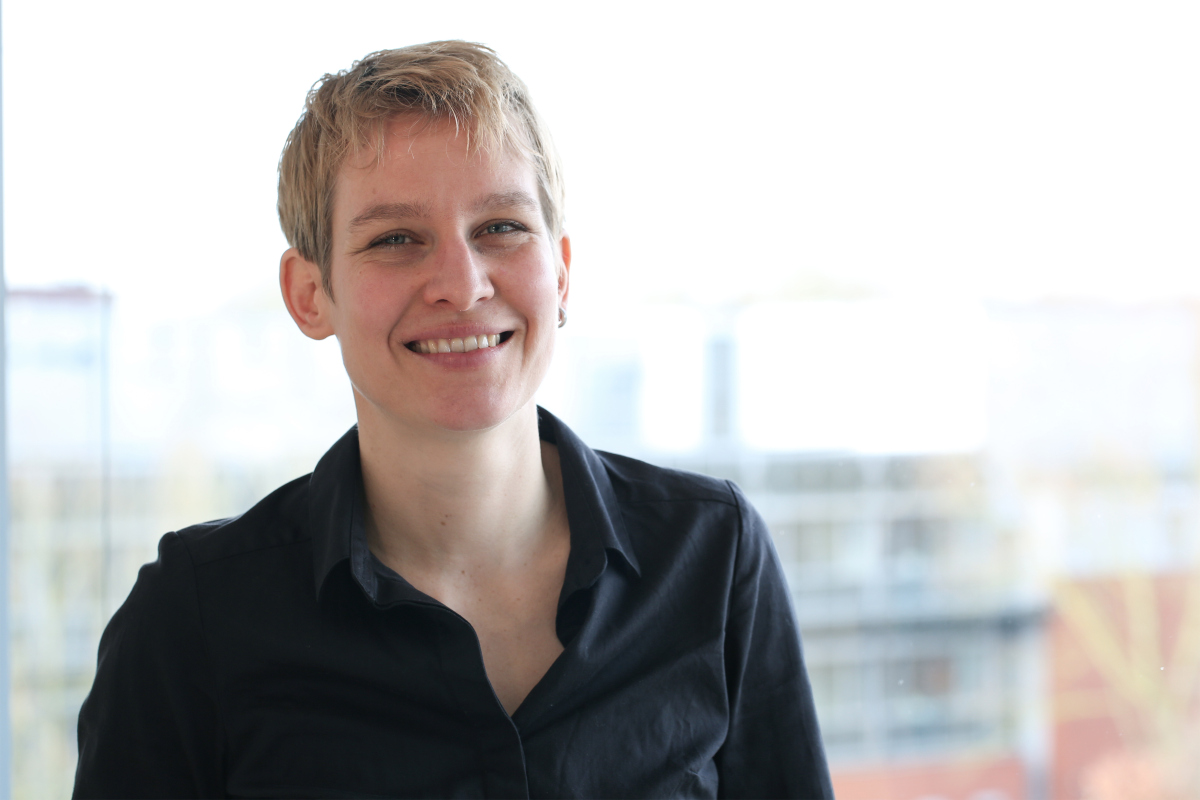- Press Office
- Press releases 2020
- Climate factor clouds
Climate factor clouds — the field campaign EUREC4A intends to answer one of climate sciences great mysteries
In order to better model low clouds over the oceans in the trade wind region, which are very important for understanding our climate, a sound comprehension of the exchange processes between ocean and atmosphere is needed. On January 20 2020, the almost six-week field study EUREC4A (Elucidating the role of clouds-circulation coupling in climate) will start. The campaign aims at validating theories on the role of clouds and convection for climate change through extensive measurements in the atmosphere and ocean. In addition, EUREC4A will study how fine-scale features in the ocean – eddies and fronts – interact with the atmosphere. The scale and coverage of the measurements will provide opportunities to evaluate a new generation of climate models and satellite data products.
The French-German initiated field study involves more than 40 partner institutions and the deployment of five research aircrafts, four research vessels, ground based remote sensing and satellite remote sensing east and south of the Caribbean island of Barbados. Several researchers from the Max Planck Institute for Marine Microbiology in Bremen will join the campaign on board the German research vessels METEOR and MARIA S. MERIAN. They will mainly focus on biological factors that influence, for example, the oceanography, ocean-atmosphere exchange of greenhouse gases and carbon exports.
What's happening on our research ships right now?
Read the latest information in the current weekly report from FS METEOR and FS MARIA S. MERIAN.

Biologically, the western tropical Atlantic is a nutrient-poor but relatively productive region. It displays the highest levels of nitrogen fixation (N2 fixation) in the global ocean. N2 fixation can have a significant impact on ocean productivity, as many regions of the world's oceans are nitrogen-limited. Thus it also influences the global carbon cycle.
Our researchers want to gain a detailed understanding of the most important organisms involved in N2 fixation as well as the driving factors that influence, for example, oceanography, ocean-atmosphere greenhouse gas exchange and carbon export. Previous studies have shown that the cyanobacteria Trichodesmium and UCYN-A are key players. However, these two organisms alone cannot explain the total N2 fixation. Presumably there are other important nitrogen-fixing organisms. One of our goals is to identify these other possible organisms. In addition, the two voyages together will allow us to study the spatial and temporal variability in N2 fixation in relation to mesoscale oceanographic properties.
EUREC4A is led by Prof Bjorn Stevens, Director at the Max Planck Institute for Meteorology in Hamburg, Germany, and Dr Sandrine Bony, Director of Research at the Laboratoire de Météorologie Dynamique in Paris, France. Their initiative builds on, and extends, a decade of cooperation with Barbadian scientists at the Caribbean Institute for Meteorology and Hydrology (CIMH), under the leadership of its Principal, Dr David Farrell.
Do you want to learn more about EUREC4A? Further details are available in the accompanying press release and on the EUREC4A website.
From Germany, four Max Planck Institutes are involved in the campaign (MPI-M, MPI for Dynamics and Self-Organization, MPI for Chemistry and MPI for Marine Microbiology), five universities (Cologne, Hamburg, Hohenheim, Leipzig and Munich), three Helmholtz institutions (DLR, GEOMAR and HZG), the Leibniz Institute TROPOS and the German Meteorological Service (DWD).
EUREC4A is funded by: European Research Council (ERC), Max Planck Society (MPG), Centre National de Recherche Scientific (CNRS), German Research Foundation (DFG, Deutsche Forschungsgemeinschaft), Caribbean Institute for Meteorology and Hydrology (CIMH), Natural Environment Research Council (NERC), and World Climate Research Programme (WCRP).
Please direct your queries to:
Head of Press & Communications
MPI for Marine Microbiology
Celsiusstr. 1
D-28359 Bremen
Germany
|
Room: |
1345 |
|
Phone: |
